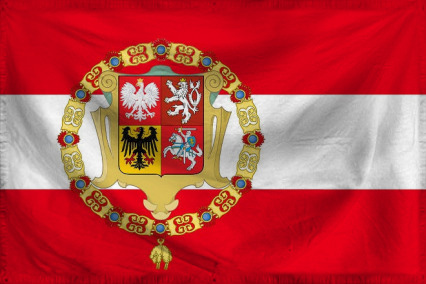
Advertisement

![]() by Aision » Fri May 03, 2019 12:57 pm
by Aision » Fri May 03, 2019 12:57 pm

![]() by Costabuena » Fri May 03, 2019 3:05 pm
by Costabuena » Fri May 03, 2019 3:05 pm

![]() by Ngaalxa » Fri May 03, 2019 3:13 pm
by Ngaalxa » Fri May 03, 2019 3:13 pm

![]() by The Holy Athonite State » Fri May 03, 2019 3:31 pm
by The Holy Athonite State » Fri May 03, 2019 3:31 pm

![]() by The World Capitalist Confederation » Fri May 03, 2019 3:36 pm
by The World Capitalist Confederation » Fri May 03, 2019 3:36 pm

![]() by Pheonisland » Fri May 03, 2019 10:40 pm
by Pheonisland » Fri May 03, 2019 10:40 pm

![]() by Confederate Ameriwyr Leagues » Sun May 05, 2019 12:23 am
by Confederate Ameriwyr Leagues » Sun May 05, 2019 12:23 am

![]() by Plaetopia » Sun May 05, 2019 2:34 am
by Plaetopia » Sun May 05, 2019 2:34 am
Plaetopia Post: Plaetopian economy slowly recovering | A new law passed by the Federal Assembly explicitly recognizes persecution because of sexual orientation as a valid reason for asylum in Plaetopia
![]() by Islaevia » Sun May 05, 2019 3:27 am
by Islaevia » Sun May 05, 2019 3:27 am

![]() by Laruban » Sun May 05, 2019 4:45 pm
by Laruban » Sun May 05, 2019 4:45 pm

![]() by First American Empire » Sun May 05, 2019 11:30 pm
by First American Empire » Sun May 05, 2019 11:30 pm

![]() by Kakistopia » Sun May 05, 2019 11:59 pm
by Kakistopia » Sun May 05, 2019 11:59 pm

![]() by Terra Novam » Mon May 06, 2019 1:15 am
by Terra Novam » Mon May 06, 2019 1:15 am

![]() by Central European Commonwealth » Mon May 06, 2019 2:24 am
by Central European Commonwealth » Mon May 06, 2019 2:24 am

![]() by Slavakino » Tue May 07, 2019 5:14 am
by Slavakino » Tue May 07, 2019 5:14 am

![]() by Drongonia » Tue May 07, 2019 5:27 am
by Drongonia » Tue May 07, 2019 5:27 am
The Republic of Drongonia
The MT powerhouse of Oceania. New Zealand but richer.
Overview | Political Parties | Our Leader | Defence Force Info | 9axes | Faces of Drongonia | Drongonia - The Man Behind the Spreadsheet

![]() by Creataris » Tue May 07, 2019 2:33 pm
by Creataris » Tue May 07, 2019 2:33 pm

![]() by The Norden Utopia » Sat May 11, 2019 4:17 pm
by The Norden Utopia » Sat May 11, 2019 4:17 pm

![]() by Draycora » Sun May 12, 2019 2:40 pm
by Draycora » Sun May 12, 2019 2:40 pm

![]() by First American Empire » Thu May 16, 2019 10:47 am
by First American Empire » Thu May 16, 2019 10:47 am

![]() by Ferlik » Tue May 21, 2019 12:19 am
by Ferlik » Tue May 21, 2019 12:19 am

![]() by Kuriyama » Tue May 21, 2019 7:08 pm
by Kuriyama » Tue May 21, 2019 7:08 pm

![]() by Terabithya » Mon Feb 24, 2020 12:58 am
by Terabithya » Mon Feb 24, 2020 12:58 am

![]() by Sovietstanica » Mon Feb 24, 2020 3:15 am
by Sovietstanica » Mon Feb 24, 2020 3:15 am
★ | Sovietstanica | Cabinet | Dispatches | Gallerium | NSTracker | NSEconomy | ★This account is managed by the Ministry of the Exterior as the Soviet Embassy to the Fora.
16ᵗʰ Franklin St. № 46, Stolitzgrad, 211 R.E. | 5 ¾ Civilization (Tier IX-Level II-Type VIII)
Website: https://sovietstanica.pr | Telegram: 3415855 (Hotline) / 3590315 (Postal)

![]() by Confederate American SU » Mon Feb 24, 2020 3:20 pm
by Confederate American SU » Mon Feb 24, 2020 3:20 pm
Advertisement
Return to Factbooks and National Information
Users browsing this forum: Danternoust, Happy-go-lucky forever
Advertisement